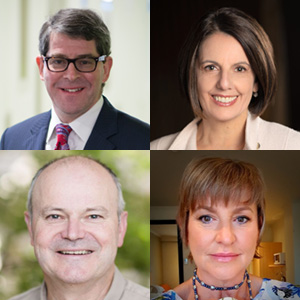Associate Professor Stephen Gallagher has spent months at sea over the past several years, drilling into the past to obtain a record of Australian geological history. The expedition set out to recover a 5-million-year record of the Australian climate – and surpassed their expectations by uncovering 50 million years. Gallagher was pleasantly surprised at the gems of information discovered on changes to aridity, sea levels, and monsoon cycles that the core samples revealed.
I’ve been alerted to a number of concerns held by those attending the peaceful protest action at the Royal Society of Victoria (RSV) last Friday afternoon for the cancellation of DELWP’s community consultation and subsequent closure of the Society’s building. This statement is provided at my earliest opportunity to help clarify matters from the Society’s perspective. As an independent organisation, the Society’s relationship with government is complex. In some cases we act as a partner, in some as a service provider, and in others as a venue provider.
The inaugural Science Gossip event was held at the Royal Society of Victoria on the 15th of May. The event planted artists, philosophers, the public and scientists in common ground to discuss and unravel the secrets of forest communication, complexities and communities. Dr Renee Beale invited RSV members and guests to ‘really see trees.’
The current treatment model for addictive behaviours involves treating people based on the substance or behaviour they are dependent on; however, there are usually underlying psychological reasons for their addictions that might not go away (i.e. treating someone for alcoholism who drinks due to an earlier trauma doesn’t remove the injury of the underlying trauma). The solution is to ‘focus on underlying drivers, not surface symptoms of problematic behaviours’. Rather than assessing and focusing on a diagnostic “what”, Professor Yücel and BrainPark are focusing on the “why”.
Our uptake of new technologies and electronics comes at a cost: information and communications technology (ICT) consumes about 8% of global electricity, doubling every decade. A massive amount of energy is consumed in the thousands of factory-sized data centres that house “the cloud,” as well as computer systems for telecommunication and storage. Most of the energy consumed in data centres, computers and other devices is dissipated as heat rather than being used to power the device itself, meaning that much of it is wasted. ICT is now on par with the aviation industry for their contribution to global warming, and it’s time for a change.








